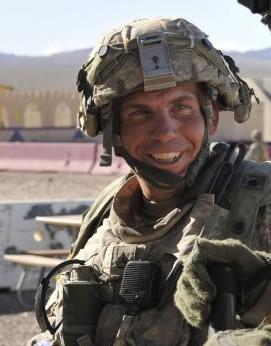Spiritual Care Handbook on PTSD/TBI is a new 3-hour online CEU course that provides best practices for the provision of spiritual care to persons with post traumatic stress disorder and traumatic brain injury.
 With the wars in the Persian Gulf, Afghanistan, and Iraq, a new generation of military veterans has arrived home, requiring appropriate and sensitive pastoral care. This course is based on a handbook written for the Department of the Navy by The Rev. Brian Hughes and The Rev. George Handzo, entitled Spiritual Care Handbook on PTSD/TBI: The Handbook on Best Practices for the Provision of Spiritual Care to Persons with Post Traumatic Stress Disorder and Traumatic Brain Injury. This manual begins by describing the criteria for posttraumatic stress disorder and traumatic brain injury. The handbook goes on to outline a theory of recovery, to describe the general stance of the pastoral counselor, and to provide guidelines for sensitivity to differences in religion, culture, and gender.
With the wars in the Persian Gulf, Afghanistan, and Iraq, a new generation of military veterans has arrived home, requiring appropriate and sensitive pastoral care. This course is based on a handbook written for the Department of the Navy by The Rev. Brian Hughes and The Rev. George Handzo, entitled Spiritual Care Handbook on PTSD/TBI: The Handbook on Best Practices for the Provision of Spiritual Care to Persons with Post Traumatic Stress Disorder and Traumatic Brain Injury. This manual begins by describing the criteria for posttraumatic stress disorder and traumatic brain injury. The handbook goes on to outline a theory of recovery, to describe the general stance of the pastoral counselor, and to provide guidelines for sensitivity to differences in religion, culture, and gender.
Referring to the empirical literature, specific pastoral interventions are described, including group work, meaning-making, spiritual care interventions, clinical use of prayer and healing rituals, confession work, percentage of guilt discussion, life review, scripture paralleling, reframing God assumptions, examining harmful spiritual attributions, encouraging connection with a spiritual community, mantra repetition, creative writing, sweat lodges, psychic judo, interpersonal therapy, and trauma incident reduction. Several other beneficial features include a description of seven stages of faith development and tips for self-care for the pastoral counselor. Course #30-66 | 2009 | 112 pages | 18 posttest questions
Professional Development Resources is approved by the American Psychological Association (APA) to sponsor continuing education for psychologists; by the National Board of Certified Counselors (NBCC) to offer home study continuing education for NCCs (Provider #5590); by the Association of Social Work Boards (ASWB Provider #1046, ACE Program); by the National Association of Alcoholism & Drug Abuse Counselors (NAADAC Provider #000279); by the California Board of Behavioral Sciences (#PCE1625); by the Florida Boards of Clinical Social Work, Marriage & Family Therapy, and Mental Health Counseling (#BAP346) and Psychology & School Psychology (#50-1635); by the Illinois DPR for Social Work (#159-00531); by the Ohio Counselor, Social Worker & MFT Board (#RCST100501); by the South Carolina Board of Professional Counselors & MFTs (#193); and by the Texas Board of Examiners of Marriage & Family Therapists (#114) and State Board of Social Worker Examiners (#5678).
What Customers Are Saying:
“I work with trauma survivors, who include returning veterans, their families, as well as non-military trauma survivors. I work from a Rogerian/mindfulness perspective,and having this background regarding pastoral counseling and working with PTSD/TBI will be very helpful in my practice.” – K.S. (Counselor)





